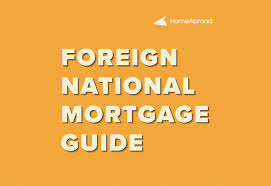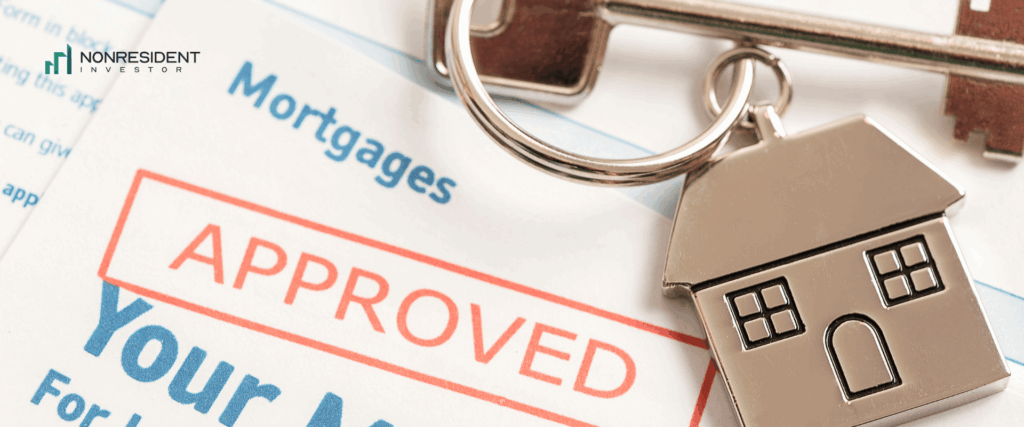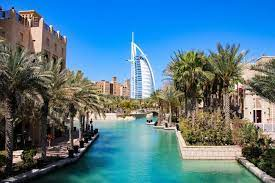Now Reading: How Foreigners Can Get a Mortgage for Dubai Property in 2025
-
01
How Foreigners Can Get a Mortgage for Dubai Property in 2025
How Foreigners Can Get a Mortgage for Dubai Property in 2025

Table of Contents
Foreigners Can Get a Mortgage: Dubai’s real estate market in 2025 is thriving, with 94,000 residential transactions worth AED 262.7 billion in H1, up 23.04% year-on-year . Foreigners can purchase freehold properties in zones like Dubai Marina, Jumeirah Village Circle (JVC), and Business Bay, offering 6–12% rental yields and 5–15% capital appreciation.
Non-residents are eligible for mortgages from UAE banks, typically covering 50–70% of the property value, making Dubai’s market accessible despite high entry costs. This guide outlines the steps, requirements, and strategies for foreigners to secure a mortgage for Dubai property in 2025, ensuring a smooth and compliant process.
Step 1: Understand Mortgage Eligibility for Non-Residents
Foreigners, including non-residents, can apply for mortgages in Dubai under Central Bank of the UAE regulations, updated in 2023. Key eligibility criteria include:
- Age: 21–65 at application (maximum 70 at loan maturity).
- Income: Minimum monthly income of AED 15,000–25,000, depending on the bank (e.g., Emirates NBD, Mashreq).
- Employment: Stable income source, verified via salary certificates or business documents for self-employed applicants.
- Credit History: Banks assess creditworthiness, often requiring a UAE credit report or international credit history (e.g., Equifax, Experian).
Non-residents face stricter terms than UAE residents, with lower loan-to-value (LTV) ratios (50–70% vs. 80% for residents) and higher interest rates (3–5% vs. 2–4%). For a AED 2 million apartment in Dubai Marina, expect a mortgage of AED 1–1.4 million.
Step 2: Choose a Freehold Property
Mortgages are available for freehold properties in designated zones like Dubai Marina, JVC, Business Bay, Downtown Dubai, and Dubai Hills Estate, where foreigners can own property outright under Decree No. 3 of 2006. Both ready and off-plan properties qualify, though off-plan mortgages may require developer approval and proof of construction progress via the Dubai Land Department (DLD) project tracker. For example, a AED 1.5 million apartment in JVC (yielding 7.5–9.3%) is a popular choice. Verify freehold status and title deeds via the DLD portal to ensure eligibility.
Step 3: Research Mortgage Providers

Major UAE banks offering mortgages to foreigners in 2025 include Emirates NBD, Mashreq, Dubai Islamic Bank (DIB), and HSBC. Compare terms:
- LTV Ratio: 50–70% for non-residents (e.g., AED 750,000–1.05 million for a AED 1.5 million property).
- Interest Rates: Fixed (3–5% for 1–5 years) or variable (based on EIBOR + 1–2%).
- Loan Tenure: Up to 25 years, subject to age limits.
- Fees: Processing fee (1% of loan, capped at AED 15,000), valuation fee (AED 2,500–3,000), and mortgage registration fee (0.25% of loan + AED 290).
Islamic banks like DIB offer Sharia-compliant financing (e.g., Ijara), with similar terms but structured as lease-to-own. Use online calculators from Property Finder or bank websites to estimate monthly payments (e.g., AED 6,000–8,000 for a AED 1 million loan over 20 years).
Step 4: Gather Required Documentation
Banks require specific documents to assess eligibility and process mortgages. Non-residents should prepare:
- Valid passport and visa (if applicable).
- Proof of income: Salary certificates (salaried) or audited financials (self-employed, 2–3 years).
- Bank statements (6–12 months, showing income and savings).
- UAE or international credit report (if available).
- Sales Purchase Agreement (SPA) or reservation form from the developer/seller.
- Property valuation report (arranged by the bank, AED 2,500–3,000).
For off-plan properties like Creek Waters II (AED 1.7 million), include the developer’s no-objection certificate (NOC) and escrow account details. Submit documents in English or Arabic (translated if needed) to avoid delays.
Step 5: Apply for Pre-Approval
Obtain a mortgage pre-approval before finalizing a property to confirm borrowing capacity and streamline negotiations. Submit initial documents (passport, income proof, bank statements) to the bank, which assesses creditworthiness and issues a pre-approval letter (valid 30–60 days). Pre-approval for a AED 1 million loan, for instance, confirms eligibility for properties up to AED 1.43–2 million (50–70% LTV). Engage a RERA-registered agent, verifiable via the Dubai REST app, to identify properties within budget. Pre-approval strengthens offers, especially for competitive off-plan projects.
Step 6: Finalize the Mortgage and Property Purchase
After selecting a property, follow these steps:
- Sign the SPA: Agree on terms with the seller or developer, paying a 10–20% deposit (e.g., AED 150,000 for a AED 1.5 million property) into the seller’s account or escrow for off-plan projects.
- Submit Mortgage Application: Provide the SPA, property details, and valuation report to the bank. The bank conducts a property appraisal and finalizes the loan terms.
- Pay Fees: Cover the mortgage registration fee (0.25% of loan + AED 290), DLD transfer fee (4%, often split), and registration fees (AED 4,200 for properties over AED 500,000).
- Register with DLD: Complete the transaction at a DLD office or Trustee Centre, where the mortgage is registered, and the title deed is issued in the buyer’s name, noting the bank’s lien.
For a AED 2 million property with a 60% mortgage (AED 1.2 million), expect monthly payments of AED 7,000–9,000 over 20 years. Verify escrow compliance for off-plan projects via DLD.
Step 7: Manage Post-Purchase Obligations

After purchase, register utilities with DEWA (AED 1,000–2,500 setup fee). For rentals, obtain a holiday home permit for short-term lets (e.g., Airbnb in Dubai Marina, 9–12% yields) or register long-term leases via DLD’s Ejari system (AED 220). Budget for 5% municipality housing fees on rental income, 1–2% annual maintenance, and service charges (AED 7–30 per sq. ft.). For Golden Visa eligibility (AED 2 million threshold), submit the title deed, passport, and health insurance to DLD Cube (fees: AED 9,884.75 primary, AED 5,774.50 per family member). Non-residents can hire property management firms to handle tenants and compliance.
Strategic Tips for Foreign Buyers
- Target High-Yield Zones: Choose properties in JVC (7.5–9.3% yields), Dubai Marina (6–10%), or Business Bay (7–9%) to offset mortgage payments with rental income.
- Compare Banks: Shop around for the best LTV ratios and rates. Emirates NBD and Mashreq offer competitive non-resident terms.
- Leverage Tax Benefits: Hold properties individually for tax-free gains or use DIFC/DMCC free zone companies to minimize 9% corporate tax on rentals over AED 375,000 [web:14].
- Verify Compliance: Confirm developer reliability (e.g., Emaar, Nakheel) and escrow accounts via DLD to avoid delays or fraud [web:15].
- Mitigate Currency Risks: Use UAE-based forex services to lock in exchange rates for overseas funds.
- Engage Professionals: Hire RERA-registered agents and legal advisors to review SPAs and ensure compliance with DLD and RERA regulations.
- Monitor Market Trends: Use DXB Interact, Property Finder, and DLD data to identify high-demand areas and infrastructure updates (e.g., Blue Line Metro) for appreciation potential [web:18].
Conclusion
Foreigners can secure mortgages for Dubai property in 2025 by understanding eligibility, choosing freehold properties, researching banks, gathering documents, obtaining pre-approval, finalizing the purchase, and managing post-purchase obligations. With 50–70% LTV ratios, 3–5% interest rates, and access to high-yield zones like JVC and Dubai Marina, mortgages make Dubai’s market accessible.
By verifying developer credentials, engaging RERA-registered professionals, and leveraging tools like DLD’s portal, foreigners can confidently finance properties, securing 6–12% yields, 5–15% capital gains, and Golden Visa benefits in a thriving, regulated market.
read more: Dubai Property Guide: 7 Rules Foreign Buyers Must Understand in 2025



















